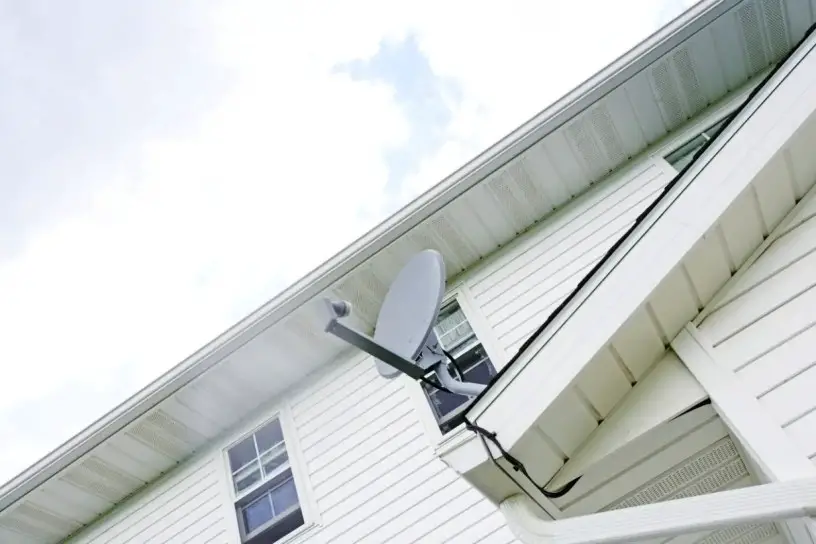TV Answer Man, Dish and DIRECTV keep losing subscribers so why haven’t they merged so they can do better against streaming companies and cord cutting? I don’t understand what is taking so long for them to get a deal done. — Marshall, New Haven, Connecticut.
Marshall, there have been rumors that DIRECTV and Dish will merge for decades. In fact, the companies actually did try to merge once but the deal was rejected by federal regulators in 2002 on the grounds that it would reduce video options for consumers.
The merger buzz has escalated in the past several years with both Dish and DIRECTV losing millions of subscribers due to cord-cutting and other factors. Dish Chairman Charlie Ergen has even said repeatedly that the merger is “inevitable” because the market can no longer support two satellite TV services. The combining of the two satcasters would enable the company left standing to more effectively compete against the onslaught of new streaming ventures as well as existing cable TV services.
Click Amazon: See Today’s 1-Day-Only Deals!
The New York Post reported last January that the two companies were discussing a merger but there has been little in the news about a deal since then although, if anything, the economics suggest a merger is needed more than ever. Dish and DIRECTV losses continue to pile up.
So what’s holding up a DIRECTV-Dish merger?
Dish’s Ergen yesterday spilled the beans.
Following the release of the company’s second quarter report, which showed Dish losing another 257,000 net subscribers (including Sling TV), Ergen took questions from analysts and journalists on several subjects, including the status of a DIRECTV-Dish merger.
“On DIRECTV…I’d say the same thing,” he said. “We think that’s inevitable, but I do think you’re close enough to the election today that I think regulatory is your biggest risk. And I think you’d wait and see which way the wind is blowing and you’re going to know that in the next couple of months.”
In other words, Ergen is concerned that the Biden administration might reject the merger for anti-competitive reasons. While there is an abundance of streaming options now, many rural residents have only two choices in video: DIRECTV and Dish. (The Internet is not accessible and/or reliable in many rural neighborhoods.) If the companies merged, it would reduce that choice to one. The Justice Department and FCC, both of which would have to approve any merger, might be sensitive to the argument that it would hurt consumers once again.
But Ergen seems to believe that the administration could soften that stance after the November congressional elections. Polls show the Republicans could take the House and perhaps the Senate. While that wouldn’t change the players in the Biden administration, it could make them more inclined to support a pro-business view rather than a strict pro-consumer one.
Waiting also enables Dish and DIRECTV to monitor any pre-election pronouncements from DOJ and the FCC (and the FTC) to better gauge whether a merger could succeed.
Marshall, hope that makes sense. Happy viewing and stay safe!
Have a question about new TV technologies? Send it to The TV Answer Man at swann@tvanswerman.com Please include your first name and hometown in your message.
— Phillip Swann
@tvanswerman


Pro consumer, pro business. Eventually these will align. Because, the way the industry is going, the content providers are trying their hardest to eliminate the middleman (broadcasters, cable, satellite, etc… Look at how NBC is moving “Days…” to streaming and away from their broadcast and cable networks!!). Eventually, there will be a point where Dish and DIRECTTV cannot continue to provide service to the ever-decreasing number of customers, and they will either have to merge or die. At that point, the pro-consumer decision will be to allow them to consolidate their resources and continue providing service to the shrinking market. Or die, and all of those customers will be left with nothing.
I’ve had both Dish and Directv in the past and loved them. The picture, interface, and reliability was superb. But. But, I got tired of the constant price rises to pay for channels I didn’t watch. I cut the cord for a skinny streaming bundle and niche on demand content. If the sats could match that at a competitive price, I’m back.
I think if they are waiting on the elections, they will be waiting a long time. The Senate isn’t going anywhere. The Republicans are fading. Neither Dish or Directv can stay competitive by themselves for much longer. I know for a fact that DirecTV is pumping millions into some of their sites. That tells me, they are planning on being around, which probably means a merger is imminent.